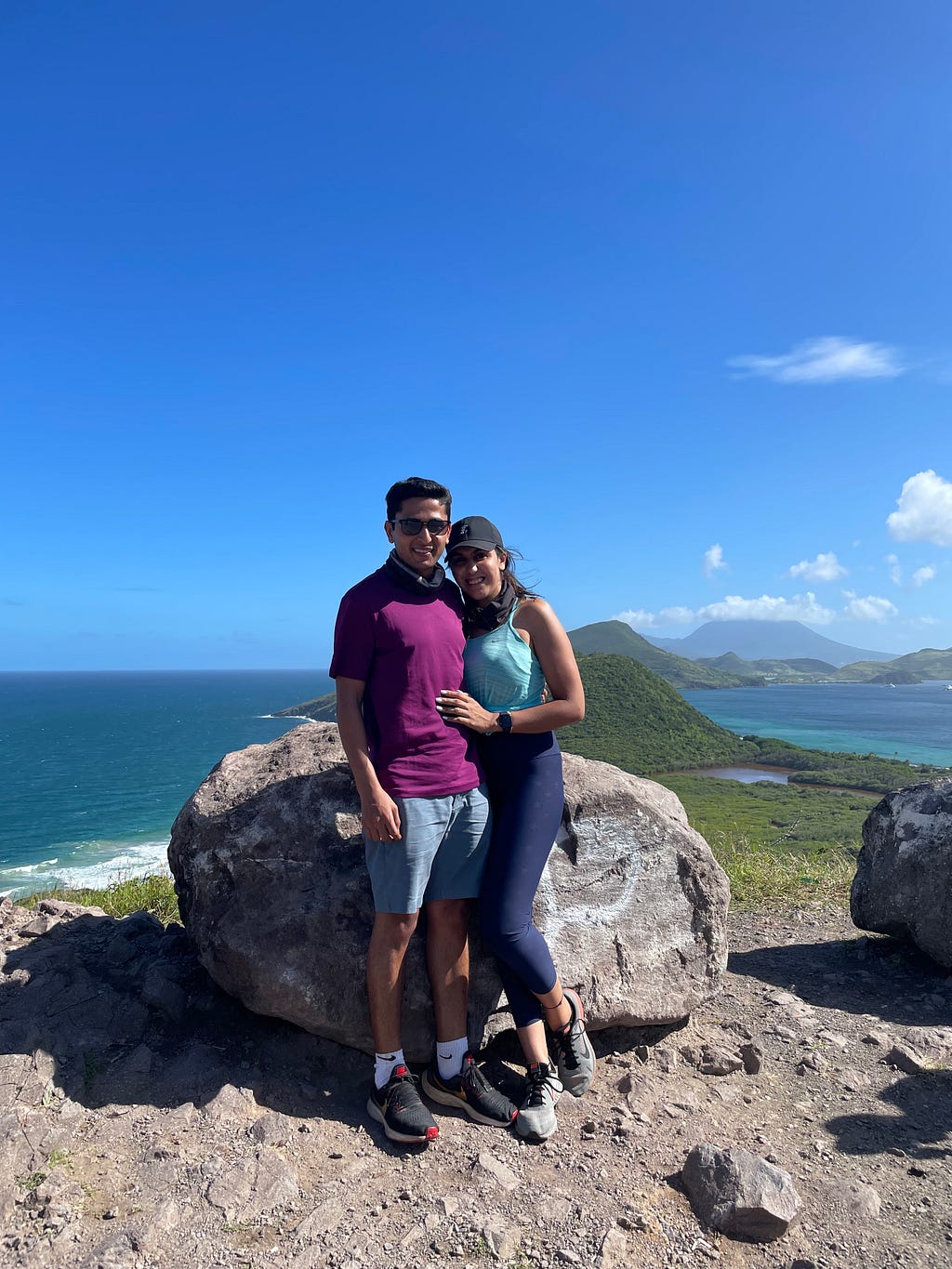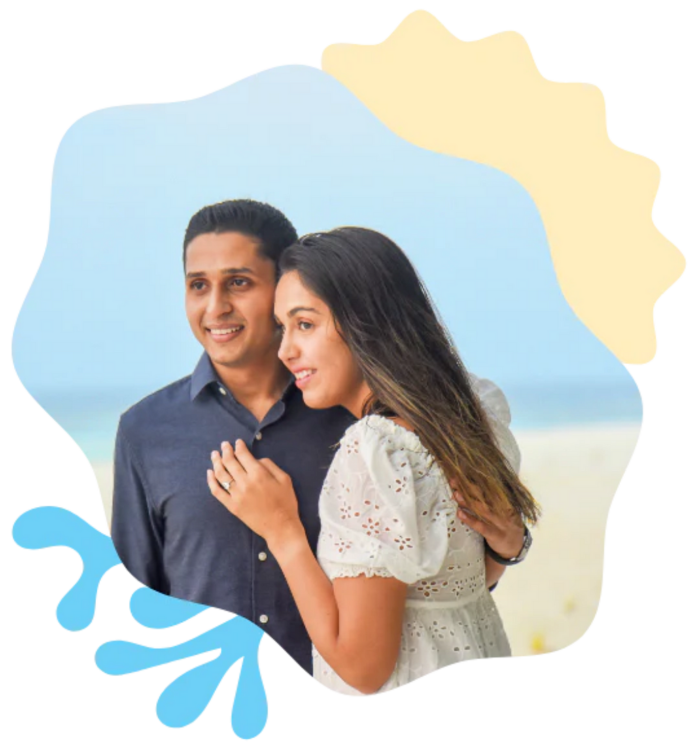JPrateek Agarwal Of Calgee: Five Strategies Our Company Is Using To Tackle Climate Change & Become More Sustainable
An Interview With Martita Mestey
Keep learning — to really become an expert in your field, you have to spend a few years learning and absorbing all the information you can.
As part of our series about how companies are becoming more sustainable, we had the pleasure of interviewing Prateek Agarwal, founder of Calgee.
Prateek Agarwal is the founder of Calgee, a sustainable supplement company. Prateek began his career in healthcare product strategy in Los Angeles, before moving on to work as a freelance marketer for various tech and e-commerce companies. Calgee is a labor of dedication to sustainability and personal well-being, and was founded when Prateek & his wife, Shreya, needed a wholesome, vegan omega-3 and couldn’t find one to suit their needs.
Thank you so much for doing this with us! Can you tell us a story about what brought you to this specific career path?
I started Calgee with my wife, Shreya, in 2020. That year, during a routine check-up, I was surprised to learn that my cholesterol levels were in the “very high” range. Despite being young and healthy, they were higher than they should have been for someone my age. To make matters worse, I discovered that both Shreya and I were at a higher risk for cardiovascular diseases due to our family histories.
With everything else happening in 2020, our health became our top priority. We fine-tuned our diets and increased our exercise routines. It still wasn’t enough.
Our doctors suggested taking fish oil supplements, but as vegetarians, we were reluctant to consume fish oil. We didn’t want to compromise our principles for the sake of our health.
Convinced there had to be a better solution in nature, we discovered vegan omega-3 oil supplements as a sustainable alternative to fish oil. However, we learned that most of these capsules contained carrageenan, an ingredient known to cause stomach inflammation.
Frustrated by the lack of suitable options on the market, we decided to create our own product.
Determined to develop something pure, sustainable, and environmentally friendly, we embarked on our journey to establish Calgee. Today, Calgee is a mission-driven health and wellness company committed to using its influence to create a positive impact on the environment.
What is the mission of your company? What problems are you aiming to solve?
Our mission is to create the world’s most sustainable and high-quality health supplements. For the consumer and the planet.
We aim to create supplements using only premium and eco-friendly ingredients. Our vegan omega-3 supplement is made using algae oil instead of fish oil. The algae oil we’ve sourced is potent, and processed with the smallest impact to the ecosystem. We’re trying to reduce global reliance on fish and fish-based products, while providing vegan and non-vegan customers with a comparable alternative.
Can you tell our readers about the initiatives that you or your company are taking to address climate change or sustainability? Can you give an example for each?
At Calgee, we are deeply committed to addressing climate change and promoting sustainability. We’ve implemented various initiatives to ensure that our impact on the environment is positive and constructive. Here are a few examples:
- Sustainable Sourcing: We prioritize the use of sustainably sourced ingredients for our vegan omega-3 oil supplements. By deriving our omega-3s from algae rather than fish, we help reduce overfishing and protect marine ecosystems. Our algae are cultivated in controlled environments, which minimizes the risk of contamination and ensures a high-quality product.
- Eco-friendly Packaging: To minimize waste and reduce our carbon footprint, we use recyclable and biodegradable packaging materials for our products. This commitment extends from our product containers to our shipping materials, helping to reduce single-use plastics and our overall environmental impact. For example, our mailer bags have a second seal so they are reusable at least once more.
- Supporting Nonprofits: We’ve been a part of 1% for the Planet since we started. We’ve recently partnered with Sea Hugger, with whom we share a common vision. Their mission is to educate the public to reduce plastic dependency, while focusing on protecting the marine environment, ensuring the intrinsic rights of aquatic life, and helping create sustainable communities that are no longer affected by plastic pollution. We donate 1% of our annual revenue to their cause.
How would you articulate how a business can become more profitable by being more sustainable and more environmentally conscious? Can you share a story or example?
In sustainability, there’s a concept called the Triple Bottom Line, which suggests focusing on 3 Ps for long term survival. The 3 Ps are People, Profit, and Planet. The idea is, that by carefully considering all 3 components, you can be profitable over time.
Calgee recently switched from shipping our product in plastic bottles to more eco-friendly pouches. These pouches were a little more expensive but they’re 100% recyclable, are carbon negative and are made from plant-based plastic. By switching to pouches, we realized we would save a lot of money on shipping over time because the pouches are lighter and more compact. We’re also lowering our carbon footprint when shipping because our orders are lighter.
In a more general sense with regards to Omega-3s, we are aware that fish populations are being depleted rapidly because of overfishing. Eventually, traditional fish-based Omega-3s will become more expensive or simply unviable because the amount of supply will decrease. And it will be difficult for those businesses to survive.
The youth led climate strikes of September 2019 showed an impressive degree of activism and initiative by young people on behalf of climate change. This was great, and there is still plenty that needs to be done. In your opinion what are a few things parents should do to inspire the next generation to become engaged in sustainability and the environmental movement? Please give a story or an example for each.
1 . Create awareness — Parents should make their children aware about the effects of climate change and global warming, but also focus on sustainability. Even without the current environmental issues, we have to leave the world better than the way we found it for the next generation. For example, teaching kids reduce, reuse and recycle.
2 . Spend time in nature — Parents should encourage their children to spend more time in nature, in whatever form. Children will gain a greater appreciation for nature and can better visualize the impact of their actions.
3 . Community involvement — Parents can help their children create recycling programs at their school. This gives children a sense of ownership and involvement in their community.
4 . Lead by example — Children often follow the footsteps of their parents. For instance, parents can demonstrate the importance of recycling, conserving energy, and reducing waste by actively engaging in these practices at home. By consistently developing these habits, children will develop an awareness and understanding of the importance of sustainable living.

What are your “5 Things I Wish Someone Told Me Before I Started” and why?
- Things take time — you have to stay patient, remain focused on your goals, and persevere through challenges
- Keep learning — to really become an expert in your field, you have to spend a few years learning and absorbing all the information you can.
- You will fail a hundred times — the only way to really succeed is through learning from your mistakes.
- Take a break — there are always things to do and it can be overwhelming. Sometimes to be more productive, you have to switch off from work and take a break.
- Decide when you want to make an impact — it’s easier to be a sustainable company at scale where your volume makes economic sense. You can reach more people and do more as an operational company than as a super sustainable and bankrupt one.
None of us are able to achieve success without some help along the way. Is there a particular person who you are grateful towards who helped get you to where you are? Can you share a story about that?
I’m grateful to my wife Shreya, who has always been there for me. We’ve been through all the ups and downs together for the last 13 years and she’s given me the confidence to believe in myself. Whether that’s flying across the country to pick up boxes of our product so we can ship it out to customers on time, or discussing every angle of a problem, I would not have had half the success I’ve had so far without her by my side.
You are a person of great influence and doing some great things for the world! If you could inspire a movement that would bring the greatest amount of good to the greatest amount of people, what would that be? You never know what your idea can trigger. 🙂
I believe that education is our biggest gift. Having been to a lot of poorer parts of the world, I’m saddened by the inequality. People stuck in low paying jobs that they will likely never progress from, but education is a game-changer — it can give people choice, dignity and opportunity. We’d also see a lot more innovation and advancement that would benefit all of us, if everyone had a chance to study. It’s not the only solution, but it can make the world a better place.
Do you have a favorite life lesson quote? Can you tell us how that was relevant to you in your own life?
One of my favorite quotes is: “The greatest threat to our planet is the belief that someone else will save it.” — Robert Swan.
I feel this is more relevant today than ever before. We have a collective responsibility in addressing climate change, but often, we are hoping someone else will do it for us. I too believed that technology and science will come up with an answer. While that may be true, we still need to do our part. Our collective micro decisions can eventually have a macro impact.
That’s why I decided that I wanted sustainability to be a core principle of the business and a factor in every decision we make.
What is the best way for our readers to continue to follow your work online?
Website: https://calgee.com/
Instagram: https://www.instagram.com/calgeehealth
Facebook: https://www.facebook.com/CalgeeHealth
This was so inspiring. Thank you so much for joining us!
JPrateek Agarwal Of Calgee: Five Strategies Our Company Is Using To Tackle Climate Change & Become… was originally published in Authority Magazine on Medium, where people are continuing the conversation by highlighting and responding to this story.


